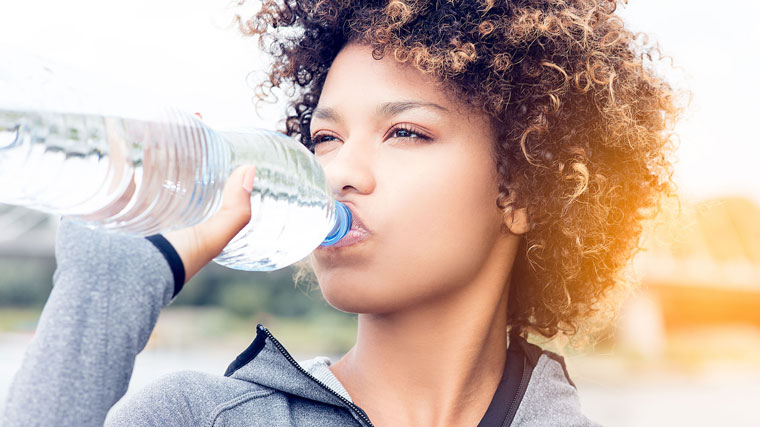Prevent Dehydration When It’s Hot Outside

Find Your Perfect Match
Answer a few questions and we'll provide you with a list of primary care providers that best fit your needs.
If your body doesn’t have enough water to function at its best, you’re dehydrated. More than half of your body is water, so if you’re running low on fluids, you’ll know it.
As a nurse practitioner with Premier Health Urgent Care, Jeff Penny, NP, has treated many patients who are dehydrated. Although you can get dehydrated any time of the year, he sees most dehydrated patients during the summer months.
“As temperatures outside rise, your body temperature also rises. It cools itself by sweating. If your body is low on fluids, and you’re not replenishing with lots of water, you’ll lose more fluids than you’re taking in and eventually you’ll become dehydrated,” he explains. “When that happens, your heart has to work harder, decreasing oxygen delivery.”
How Will I Know If I’m Dehydrated?
There are various ways to know if you’re dehydrated, says Penny, including:
- Dry mouth. This is one of the first symptoms you’ll notice.
- Dark-colored urine. It should be clear or very pale yellow.
- Headache. Mild at first, but as dehydration gets worse, you can become confused or delirious.
- Extreme thirst
- Dizziness
- Tiredness
- Urinating and sweating less than usual
Young children and babies may have these symptoms:
- Cry without tears
- High fever
- No wet diaper for three or more hours
- Eyes that look sunken
The elderly need special attention during hot weather. “If you’re on a lot of medications, or if you have dementia, you may not notice or be able to express that you’re thirsty,” says Jeff. “Confusion or fatigue are signs that caregivers should look for.”
Severe dehydration can be life threatening, leading to rapid heartbeat, rapid breathing, low blood pressure, and other serious heat illnesses. Learn more about heat illnesses and how to avoid them.
How Can I Prevent Dehydration?
“Any form of fluid offers hydration,” says Jeff. “But water is probably the best. Avoid fluids that contain caffeine (including most sodas) or alcohol. Both are diuretics and will cause you to lose fluid more quickly.”
If you’re sweating a lot, beverages like Gatorade are recommended. They include electrolyte replacements that help rehydrate your body more quickly. Fruits and vegetables that contain a lot of water (watermelon, strawberries, cantaloupe, peaches, cucumber, lettuce, zucchini, tomatoes) also can help keep your body hydrated.
During hot weather, it’s important to drink more fluids than usual. If you plan to be physically active, drink extra fluids hours before the activity begins. Then take regular drink breaks every 20 minutes during the activity.
Find Your Perfect Match
Answer a few questions and we'll provide you with a list of primary care providers that best fit your needs.
Source: Jeff Penny, Nurse Practitioner, Premier Health Urgent Care; Medline Plus




